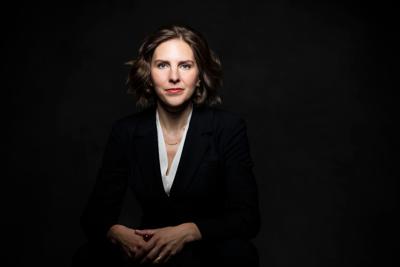
Lidiya Yankovskaya
In the male-dominated world of classical music, conductor Lidiya Yankovskaya often garners attention as the only woman in the room. It’s not a distinction she ever sought out, or even gave much thought to. Her focus has always been on the music.
“When I started out, I was the first and only woman in everything I did,” says Yankovskaya, who recently stepped down as music director of Chicago Opera Theater after seven successful seasons. “I didn’t think about it much, which was probably for the best. Because once I got on the podium, all that mattered was that I knew the score — that I knew what I wanted musically. When I arrived at COT, I was actually the first female music director of any major opera company in the U.S. Can you imagine? That is changing, but it’s very slow.”
Music has been a constant for Yankovskaya, who was born in St. Petersburg, Russia, and immigrated to Albany, N.Y., as a refugee when she was just 9. Her family was fleeing antisemitism that was prevalent in Russia at the time.
“St. Petersburg is so rich musically,” she says. “It’s a deep part of the culture, so I grew up going to performances since before I can remember. I sang with the St. Petersburg Children’s Choir and played piano. That continued when we moved to the United States, and I started playing violin as well. In upstate New York, we were just a short drive from Tanglewood and Saratoga Performing Arts Center — where the Philadelphia Orchestra has its summer home — and there were so many phenomenal musicians giving recitals in New York City. So music has always been a huge part of my life.”
Yankovskaya studied music and philosophy at Vassar College, earning a master’s in conducting at Boston University. Before taking the reins at COT in 2017, she led organizations like Juventas New Music Ensemble and Harvard’s Lowell House Opera. During her tenure at COT, she established the Vanguard Initiative, a unique two-year residency for emerging opera composers. She also commissioned 11 new works, including from six female composers and seven artists of color.
Beyond her obvious passion for new works, Yankovskaya is a self-proclaimed champion of Slavic masterpieces. And those interests are clearly reflected in the program she’s conducting with the Nashville Symphony this weekend. The concert opens with Missy Mazzoli’s lush Orpheus Undone, a piece that Yankovskaya says explores “the stretching of time, in moments of trauma or agony.” Audiences can also look forward to Sergei Prokofiev’s provocative Concerto No. 1 for Violin & Orchestra (featuring acclaimed violinist Simone Porter), along with Richard Wagner’s “Liebestod” from Tristan und Isolde, and Antonín Dvořák’s Symphony No. 7.
“One of the things I love about the Nashville Symphony is that it has such a history of supporting living American composers,” Yankovskaya says. “And Missy Mazzoli is a spectacular, very American composer. Her music is quite romantic, and this piece ties in nicely with the Wagner piece — both thematically and musically. And of course, Prokofiev and Dvořák are composers who are very dear to me.”
Also dear to her is the Refugee Orchestra Project, which she established in 2016 to celebrate “the cultural and societal relevance of refugees” through music.
“People forget that Chopin was a refugee. Rachmaninoff and Irving Berlin — who’s responsible for so much of what we know as American popular music — all refugees. So by highlighting examples of refugee composers and musicians, we’re reminded of our shared humanity — and the power of music to unite us.”





